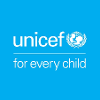Result of Service
DELIVERABLES 1. Mo Us Development and Finalization between key stakeholders, including ITC-MINICOM, and ITC- Rwanda RCO, by 30 Jan 2025. 2. Establishment of the Steering and Technical Committees, by 30 Feb 2025. 3. Programme implementation progress detailed report, monthly. 4. Develop stakeholder coordination and communication plan, by 15 Dec 2024. 5. Organize Monitoring and Evaluation Missions. 6. Identify and manage risks to JP implementation, proposing mitigation strategies in coordination with key stakeholders, monthly. 7. Prepare and submit monthly reports summarizing programme activities, events, challenges, and any necessary risk mitigation actions, monthly. REPORTING The Digital Trade National Coordinator will report to Rwanda Country Manager and Chief, Office for Africa, at ITC Headquarters.
Duties and Responsibilities
BACKGROUND: The International Trade Centre (ITC) is a joint agency of the United Nations and the World Trade Organization for trade-related technical cooperation in developing countries. It is the only multilateral agency fully dedicated to supporting the internationalization of SMEs. ITC's mission is to foster inclusive and sustainable growth and development through trade and international business development. ITC Headquarters is located in Geneva, Switzerland. ITC projects and programmes contribute to the global efforts to achieve UN Global Goals for Sustainable Development and the Aid for Trade agenda. In the context of this work, Rwanda Joint Programme (JP) on “Amplifying digital opportunities for cross-border trade” (2024-2027) is an ongoing effort between four (4) UN participating organizations (PUNOs) each ITC, IOM, UNCDF and UNCTAD with ITC as lead PUNO. The JP is funded by the United Nations Sustainable Development Goals (UN SDG) Fund, under the Digital Transformation Window launched by the UN Deputy Secretary-General, in the objective to develop innovative solutions that deliver transformative results focusing on catalytic impact, Leaving No One Behind, and leveraging broader funding and financing (in particular, EU investments) in the digital space. The JP aims to improve the livelihoods, economic opportunities, and overall well-being of Small-Scale Cross-Border Traders (SSCBTs) in Rwanda, the majority of whom are women in the informal sector. The JP will be leveraging digital technology to create better connections to resources, new markets, and existing services, and supporting efforts to ensure that regional/national policies related to CBT and digitalization translate into tangible outcomes for traders. The JP employs a three-pronged approach focused on the macro-policy, meso-service-provision, and grassroots level, strengthening the linkages between all three, through below specific expected outcomes: Outcome 1: Improved governance and regulatory framework for a conducive digital trade ecosystem. Outcome 2: Existing services are more accessible and relevant to needs of SSCBTs, through creation of tailored digital tools and capacity-building to service providers Outcome 3: SSCBTs are economically and socially empowered to improve their livelihoods and well-being, including by using and benefitting from tailored digital solutions. To support the Rwanda JP interventions, the programme is looking for a Digital Trade National Coordinator (50%), who will oversee and coordinate the implementation of the JP in Rwanda, serving as the focal point for ITC Headquarters to achieve the programme’s outcomes: DESCRIPTION OF DUTIES/RESPONSIBILITIES Under the supervision and guidance of the Country Manager and designated programme staff at ITC HQ and technical sections, the coordinator will be actively involved in supporting the successful implementation of the JP. Coordination and Strategic Oversight • Act as the primary liaison between ITC HQ and stakeholders in Rwanda, including Ministry of Trade and Industry (MINICOM), RCO and EU, to ensure alignment and effective implementation of programme activities with Rwanda government priorities. • Coordinate and oversee all aspects of programme implementation, ensuring activities are executed according to agreed timelines and budgets. • Facilitate regular communication and coordination among the PUNOs (IOM, UNCDF, UNCTAD) and key stakeholders. • Support coordination meetings with all PUNOs to track progress, address challenges, and align strategies with the overall programme objectives. • Facilitate the establishment and operation of a Steering Committee and a Technical Committee, ensuring that these governance bodies are effectively coordinated and that their recommendations are implemented. The Steering Committee will provide strategic direction, while the Technical Committee will address technical and operational issues. • Organize joint programme Steering Committee meetings, prepare meeting agendas and other documents required for the review of the committee, draft and submit meeting reports; • Follow-up on the adoption/implementation of the recommendations/inputs provided by the joint programme Steering Committee and ITC Headquarters; • Provide technical inputs required by the programme team and experts; • Ensure regular meetings and consultations with working groups per Joint programme output in coordination with the programme key stakeholders, monitor the regular organization of group meetings, contribute to the meetings and report on meeting outcomes and recommendations to ITC Headquarters; • Prepare Joint Programme progress reports and organize the collection of data and information for programme reporting against the programme monitoring and results framework; • Prepare and submit short monthly reports summarizing programme activities, event details and any risk/mitigation action, to ITC Headquarters. • Support monitoring missions to assess, analyse and report on programme progress, results and impact; • Identify risks to programme implementation and propose mitigation actions; • Keep abreast with economic and digital trade-related developments in and identify synergies and opportunities with other projects and initiatives; • Ensure efficient communication and outreach at the national level, in regions and provinces, including representation of the joint programme at national events as necessary and in coordination with the PUNOs, RCO, MINICOM and other key stakeholders; • Prepare reporting inputs, after review by ITC Headquarters, and provide information on programme activities and events to stakeholders as required. ITC champions workforce diversity, inclusion, gender equality and gender parity and considers all qualified persons - of all genders - equally, including those with disabilities, without discrimination or prejudice of any kind. Copyright Clause: The consultant has to ensure that she has obtained the necessary permissions with regard to intellectual property rights required to perform her services under this consultancy contract and for the subsequent dissemination by ITC in any form. Documentary proof is to be submitted to ITC. Should any license fee be due for the use of copyrighted materials of third parties, the consultant shall request the prior written permission from ITC.
Qualifications/special skills
Advanced degree in International Development, Economics, Business Administration, or a related field. • Minimum of 5 years of relevant experience in results-based project management and coordination, preferably in digital trade, e-commerce, or economic development. • Demonstrated knowledge of challenges to digital trade and private sector development in Rwanda • Very good understanding of public and private trade support institutions in Rwanda and their mandates as well as of private sector needs and expectations • Very good understanding of project results-based management and coordination • Knowledge of the UN system and procedures or experience of EU-related projects would be an asset • Experience in programme management and budget administration • Proven track record in stakeholder engagement, policy advocacy, and capacity building in a multicultural environment. • Excellent communication and interpersonal skills, with the ability to effectively liaise with government officials, private sector representatives, and international organizations.


























